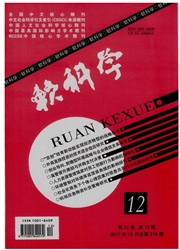

 中文摘要:
中文摘要:
引入价格加成系数刻画低碳产品零售价与批发价之间的关系,综合考虑价格和商誉对市场需求的双重影响,构建微分博弈模型;考察并比较分散式和集中式两种不同决策情形下低碳供应链的长期动态均衡策略,采用Rubinstein讨价还价模型设计合理的利润分配契约。研究发现,两种决策情形下低碳产品最优批发价相同,且与价格加成系数负相关;分散式决策下制造商参与促销存在阈值,且参与率与价格加成系数有关;集中式决策下合理的利润分配契约可促使供应链成员分得利润实现帕累托最优。
 英文摘要:
英文摘要:
Introducing price plus coefficient to characterize the relationship between the retail price and the wholesale price,it constructed a differential game model with the consideration of the double impacts of price and goodwill on the market demands. Then,it obtained and compared the optimal equilibrium strategies of the supply chain under two different decision situations. Furthermore,a profit-sharing contract of the centralized decision was made by using Rubinstein bargaining model.The results showed that the optimal wholesale price under two decision situations were equal,and negatively correlated with the price plus coefficient. In decentralized decision,there was a threshold for manufacturer to participate in the promotion,and the participation rate was only related with the price plus coefficient. Besides,reasonable profit-sharing contract of the centralized decision could enable the profits of manufacturer and retailer realize "Pareto Optimality".
 同期刊论文项目
同期刊论文项目
 同项目期刊论文
同项目期刊论文
 期刊信息
期刊信息
